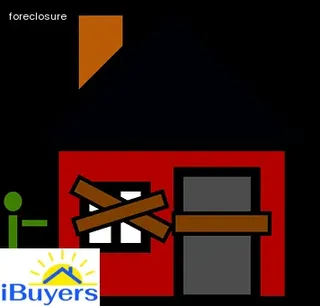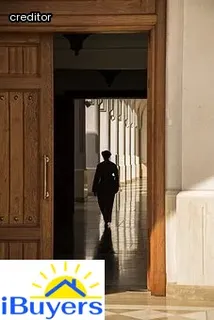Foreclosing on a property in Illinois is a long and complex process that must be carefully navigated. The primary governing document for such proceedings is the Illinois Mortgage Foreclosure Law, which dictates the timeline and process of foreclosure in the state.
Landlords, homeowners, and lenders must follow this law to ensure all parties are treated fairly during foreclosure proceedings. The first step requires the lender to file a complaint with the court, which then sets a date for an answer from the borrower.
If no answer is received after thirty days, then a default judgment may be entered against the borrower. After this, the lender must wait an additional sixty days before initiating foreclosure proceedings by filing a request for judicial sale with the court.
Following this, it can take up to four months or more before reaching a resolution depending on factors such as whether or not there are any appeals lodged. Throughout each step of this process, it is important for landlords, homeowners, and lenders alike to understand their rights under Illinois foreclosure law in order to ensure that all parties involved in foreclosures are treated fairly throughout this lengthy legal process.

The process of foreclosure in Illinois can be complex and can take many months to complete. The first step of the process is when the lender files a Complaint with the court that serves as a public notice of the foreclosure.
After the Complaint is filed, the homeowner has a certain amount of time to respond. If no response is received, a default judgment will be issued in favor of the lender.
The next step involves sending a Notice of Sale, which is sent by certified mail to both the homeowner and any other parties with an interest in the property, such as tenants or lien holders. This Notice gives all parties an additional period of time to respond before being sold at auction.
The lender must then publish a notice in a local newspaper for three consecutive weeks prior to selling the property at auction. If no bids are made on the day of sale, then ownership reverts back to the lender.
Following this, if there are still outstanding payments due on the loan, then a deficiency judgment may be issued against the former homeowner for any remaining balance owed after repossession and sale.
When facing foreclosure in the state of Illinois, it is important to understand the risks and benefits. Foreclosure can be a difficult process to go through, and there can be serious financial consequences that come with it.
On one hand, foreclosure allows for an immediate solution to a home loan that is no longer affordable or manageable. This can prevent an individual or family from falling into further debt as they are unable to make payments on the loan.
However, there are also risks associated with foreclosure including long-term damage to credit score, inability to obtain certain loans in the future, eviction and other legal costs that come with losing a home. It is important for those considering foreclosure in Illinois to weigh both the risks and benefits before taking action so they can make an informed decision about their finances.

When facing foreclosure in Illinois, it is important to understand your rights and options. One of the most important tips for avoiding foreclosure is to stay informed and actively work with your lender.
The laws governing foreclosure in Illinois are designed to help borrowers stay in their homes, so lenders must provide information about options that can help avoid foreclosure. Additionally, applicants should take advantage of loan modification programs or other state-run assistance programs if they are eligible.
It is also a good idea to seek legal advice from experienced professionals who are knowledgeable about the Illinois foreclosure process. Finally, homeowners should make payments on time and contact their lender as soon as possible if they experience any financial difficulties.
Doing all of these things can help homeowners save their homes from foreclosure and give them more time to address any financial issues they may be facing.
Illinois homeowners facing foreclosure are not alone in their struggle. There are many resources available to assist with navigating the process, from legal assistance and housing counseling to financial advocacy.
Legal Assistance Network of Illinois is a free, statewide network of attorneys dedicated to helping individuals and families receive assistance with foreclosure proceedings. The Illinois Foreclosure Law Center provides a variety of resources for homeowners in the state, including information about mortgage and foreclosure laws, resources for avoiding foreclosure, and advice for negotiating with lenders.
Homeowners may also benefit from consulting with a HUD-approved housing counselor who can provide helpful guidance on the process and help explore potential options such as refinancing or loan modification. Financial advocates like the Illinois Homeowner Assistance Program can also provide support in developing a budget, exploring payment plans, or dealing with debt collectors.
By familiarizing oneself with these resources, homeowners may find themselves better prepared to face the challenging process of foreclosure in Illinois.

When a homeowner in Illinois is facing foreclosure, a mortgage broker can be an important resource. Mortgage brokers are often the first point of contact for homeowners seeking to understand their foreclosure options, and they can provide guidance throughout the process.
Brokers have access to an array of resources, such as foreclosure laws and other legal documents, that can help homeowners understand their rights and responsibilities. Additionally, brokers are skilled in negotiating with lenders on behalf of borrowers to find a solution that works for both parties.
They also provide support during the lengthy timeline of foreclosure proceedings that can last up to a year or more in some cases. The role of a mortgage broker during foreclosure in Illinois is invaluable; they are knowledgeable experts who offer assistance and advice throughout the complicated process.
The foreclosure process in Illinois is a complex one which involves several steps. First, the lender must file a lawsuit against the borrower to initiate foreclosure proceedings.
This includes filing a complaint with the court, serving notice on the borrower, and following other procedural rules. Once those steps are taken, the court will issue an order to show cause why the mortgage should not be foreclosed.
If there is no response from the borrower or if they cannot prove their case, then the court will enter a judgment of foreclosure against them. Next, a sheriff's sale will be held and if no one purchases the property, it then goes back to the lender who can take possession of it.
Finally, once all these steps have been completed, paperwork must be filed with local authorities in order to formally transfer ownership of the property from borrower to lender.

In Illinois, the foreclosure process typically takes several months to complete. The first step is for the lender to file a complaint in court and serve it to the homeowner.
This will start the legal proceedings and may be followed by an answer from the homeowner, who may choose to contest the foreclosure. Following this, a judge may issue an order of possession if there is no response from the homeowner or if they have not been able to make arrangements with their lender.
After this order has been granted, the lender will likely set a date for a sale at auction, usually within 30 days after possession has been granted. If no bids are received during this auction, then ownership of the property transfers back to the mortgage lender.
Throughout all these steps of foreclosure, homeowners should be aware that they still have rights and options available — so it is important to understand what those are before proceeding further in any case.
In Illinois, there are two distinct types of foreclosure processes: judicial and non-judicial. A judicial foreclosure is a legal process that involves the court system and is often the last resort for lenders who wish to reclaim the property from a defaulting borrower.
In this type of foreclosure, the lender must file a lawsuit with the court, obtain a judgment from the court against the borrower, and then proceed with a sheriff’s sale. The entire process can take anywhere from six to eighteen months to complete.
On the other hand, a non-judicial foreclosure is much faster as it does not involve any court involvement. This type of foreclosure typically occurs when there is language in the mortgage agreement that allows the lender to repossess the property without going through the courts.
The process begins when the lender provides notice to both parties that they plan to foreclose on their property and ends when ownership transfers either through an auction or an agreement between borrower and lender. The non-judicial process may only take three months or less in some cases.
It is important for borrowers to understand both types of foreclosure processes so that they can make informed decisions about their options when facing financial difficulty in Illinois.

When homeowners in Illinois find themselves unable to make their mortgage payments, they may feel overwhelmed by the situation and unsure of what to do next. It is important to understand that there are options available for dealing with an unpaid mortgage, such as loan modification or refinancing.
For those who decide to pursue foreclosure proceedings, it is important to be aware of the laws in Illinois and how long the process can take. Foreclosure proceedings typically begin with a notice of default from the lender and then proceeds through a series of steps according to state law.
Generally, this process can take up to six months from the time of default until final foreclosure sale. Homeowners should also be aware that they will still be responsible for any remaining balance due on their mortgage loan after a foreclosure sale has taken place, even if their home is sold at a lower price than the outstanding loan amount.
In Illinois, homeowners facing foreclosure have options other than going through the foreclosure process. Homeowners may be able to negotiate with their lender in order to modify their mortgage terms or refinance their loan into more manageable payments.
They may also be able to enter into a repayment plan that allows them to catch up on any missed payments over a period of time. Another option is a deed-in-lieu of foreclosure, which allows the homeowner to surrender ownership of the property back to the lender without having to go through the judicial process of foreclosure.
Finally, a short sale may be an option for those unable to keep up with their monthly mortgage payments; in this situation, the homeowner sells their home for less than what is owed on the loan and agrees to forgive any remaining balance owed.

The impact of a home foreclosure on one's credit score can be severe and long-lasting. When a property is foreclosed on in Illinois, it affects the borrower's credit score for up to seven years.
During the time period when the foreclosure remains on the credit report, lenders are likely to view that person as a higher risk and may offer higher rates or reject financing altogether. A home foreclosure also commonly results in lowered credit limits for other accounts, such as credit cards, which can then make it difficult for the individual to establish positive credit history going forward.
In addition, if another loan application is made during this period, there is often an increased scrutiny by the lender due to the prior foreclosure event. It is important to note that while a home foreclosure can have serious consequences on one's financial standing and creditworthiness, it is not necessarily permanent.
With time and diligence in rebuilding good credit habits, one can eventually restore their good standing with lenders.
When facing mortgage foreclosure in Illinois, many people consider hiring an attorney to help guide them through the process. However, it is important to understand that attorneys are not free and can add significant financial costs to the already expensive foreclosure process.
Typically, an attorney will charge by the hour and provide a retainer fee before beginning any work. The cost of a retainer fee can vary greatly depending on the lawyer and the situation but may range from $2,000-$5,000.
Hourly fees can range from $100-$400 per hour on average, so depending on how long the case takes additional fees may be added as well. It is important to research different attorneys and look for ones with experience in foreclosure proceedings in order to get the most bang for your buck when it comes to legal representation.
Additionally, many lawyers offer payment plans or other options to help make their services more economical for clients who are facing financial hardship due to their foreclosure.

Preparing financially for a mortgage default or foreclosure in Illinois can seem daunting, but it is important to understand the process and know what steps you will need to take. In order to best plan for the future, it is important to know how long the foreclosure process may take in Illinois.
It is also valuable to research the different options available when facing financial hardship such as loan modification, forbearance programs, and other alternatives. Additionally, being aware of your rights as a homeowner and understanding the laws surrounding foreclosure can help make this difficult time more manageable.
It is also essential to consult with a qualified attorney who can walk you through the process and discuss any possible solutions that might be available. Taking all of these steps will help you gain a better understanding of what may happen when facing a mortgage default or foreclosure so that you can prepare financially for whatever comes next.
Foreclosures in the state of Illinois typically take between 120 to 150 days to complete. The process begins when a lender files a foreclosure lawsuit in court and ends with the sale of the property at an auction.
In between, the court will issue a summons and serve it to the homeowner, and then determine if the homeowner has any legal defenses that could stop or delay foreclosure. Then, if no legal issues arise, the lender will publish notice of sale in a newspaper and set an auction date.
Once all bidders have had their chance to bid on the property at this auction, the sale is completed and ownership is transferred to the highest bidder. The entire process can be complicated and time-consuming depending on how each step is handled.

In the state of Illinois, when a homeowner defaults on their mortgage and enters foreclosure proceedings, they must abide by the laws governing property ownership. As soon as the default occurs, the homeowner is no longer allowed to sell or transfer ownership of the property without court approval.
This means that until the foreclosure process is complete, the current owner still has certain rights to the property. The length of time this takes varies depending on several factors such as whether it is a judicial or non-judicial foreclosure, how quickly documents are filed in court and how backed up court schedules are.
In some cases, it can take as long as six months from the time of default for a new owner to be approved and take possession of the property; however, this can change drastically depending on all these variables.
It is important to understand your rights and the legal consequences of failing to pay your mortgage when dealing with home loan modifications or foreclosure proceedings. Homeowners should be aware of fraudulent practices during these processes that can cause them to lose money and property.
Strategies for limiting losses from a home foreclosure include understanding the Illinois foreclosure laws, researching options for loan modification or restructuring, staying in communication with the mortgage lender, and seeking legal counsel if needed. It is also essential to know how long the process takes, as foreclosures usually take up to one year in Illinois.
Knowing your rights, researching options, and staying informed are key steps for protecting yourself from losses during home loan modification/foreclosure proceedings.
If you are facing foreclosure in Illinois, there are several steps you can take to stop the process. The first step is to contact your lender and request a loan modification or repayment plan.
You should also consider filing for Chapter 13 bankruptcy, which allows you to keep your home while restructuring your debts. Another option is to negotiate a short sale with the bank, which involves selling your home at an agreed-upon price that is less than what you owe on a mortgage.
Additionally, you may be able to access foreclosure assistance programs that provide financial aid and counseling services. Lastly, it is important to remain informed about state laws regulating foreclosures so that you can take full advantage of any protections available to you.

When it comes to foreclosures in Illinois, the time frame for how long you can live in a foreclosed home can vary. Generally speaking, the foreclosure process in Illinois takes between 90 and 120 days from start to finish.
During this time, you may be able to remain in your home as long as all required payments are made in full within the specified amount of time. It is important to note that even if you make all payments on time, the lender has the right to accelerate the foreclosure timeline and proceed with eviction proceedings at any time.
If your home is sold at auction or through a short sale, then you will need to move out once the new owner takes possession. In some cases, however, a homeowner may be able to negotiate terms with their lender that allow them additional time before they must leave their property.
Ultimately, understanding and complying with local foreclosure laws is key to protecting your rights as a homeowner in Illinois.
The 120 day foreclosure rule is an important part of Illinois foreclosure law, determining the length of time a lender has to wait before beginning the foreclosure process. Under this rule, lenders must wait at least 120 days from the date of default before initiating proceedings - during which time they must make reasonable attempts to contact the borrower and give them an opportunity to cure the default.
The purpose of this rule is to protect borrowers from unnecessary foreclosure proceedings by giving them sufficient time to try and work out a solution with their lender. This 120 day waiting period applies regardless of whether or not the loan is in default, meaning that it can begin even if no payments have been missed.
During this time, lenders are obligated to provide borrowers with notice of their right to cure their default, as well as information about any other available options such as loss mitigation or forbearance.
When it comes to Illinois foreclosure laws, understanding how long the process takes is important for homeowners who are struggling to make their mortgage payments. Knowing when a homeowner is officially in foreclosure is critical to determining the best course of action to avoid losing one’s home.
In the state of Illinois, a homeowner must be at least three months behind on their mortgage payments before they can be considered in foreclosure. After being three months behind on payments, the lender will then issue a Notice of Default which begins the legal process for foreclosure.
This notice will inform the homeowner that they have 30 days to make up all missed payments or face foreclosure proceedings. If payment is not received within this period, the lender will then proceed with filing a Complaint with the court system and begin legal proceedings against the homeowner.
It typically takes anywhere from 6-12 months after this point before a final judgment of foreclosure is granted and the property repossessed by the lender. Homeowners should take heed of these timelines and act swiftly if they are facing difficulty making their monthly mortgage payments so as not to fall into foreclosure proceedings and risk losing their home.